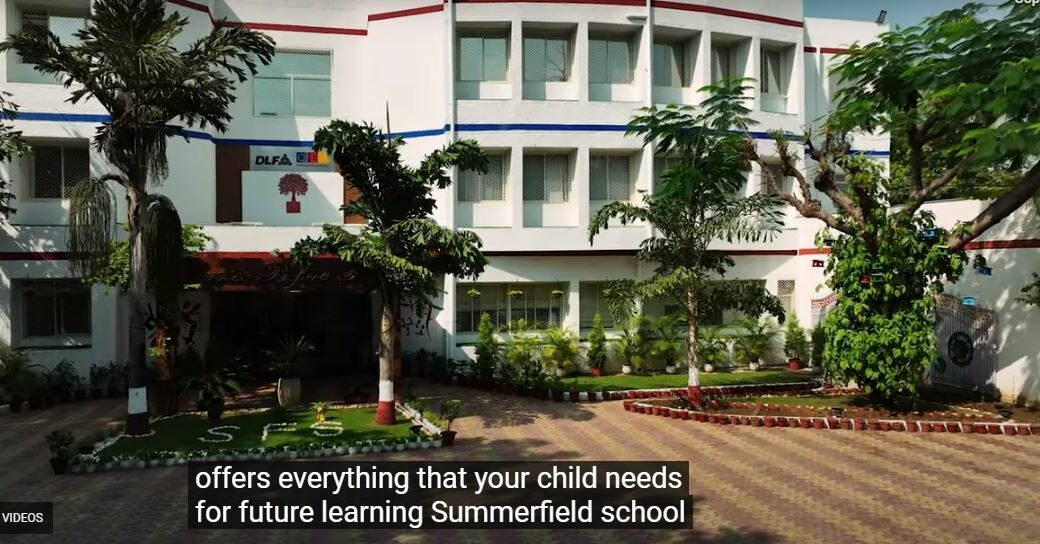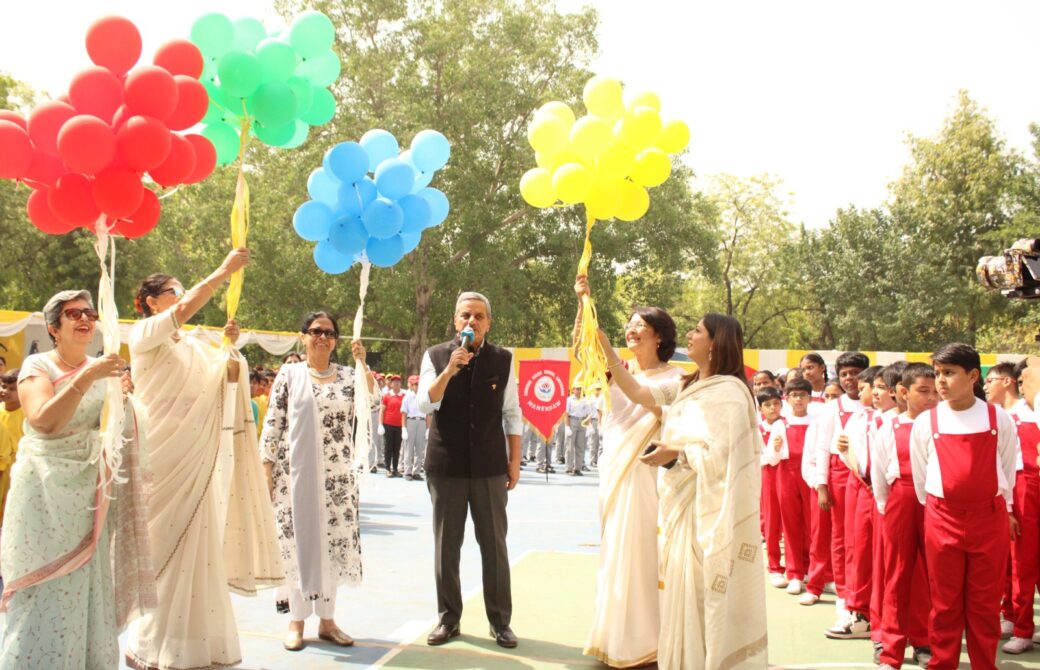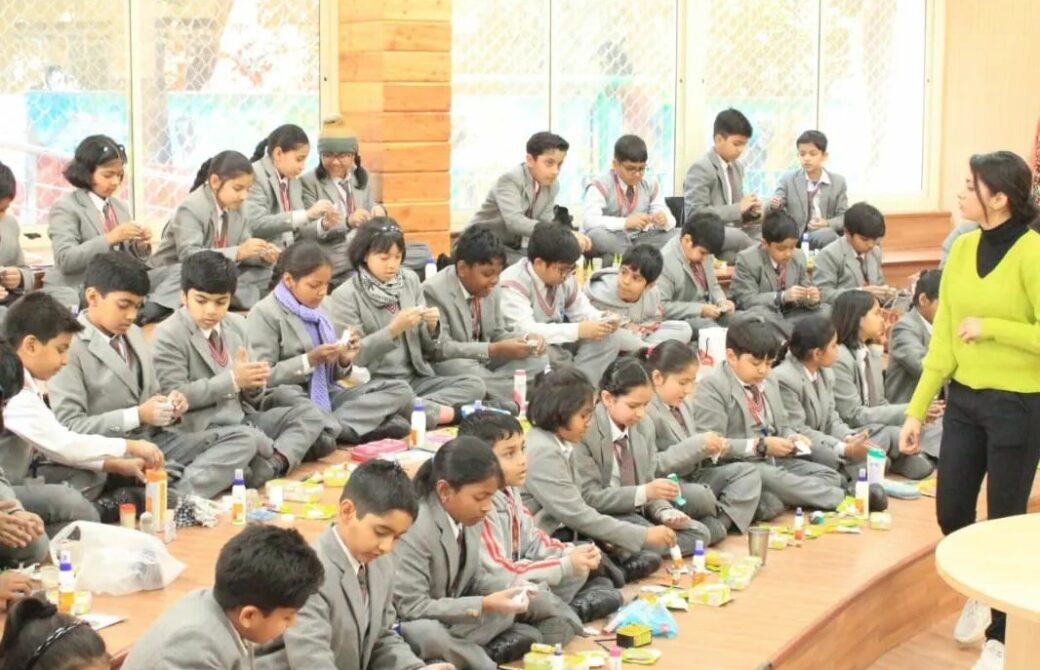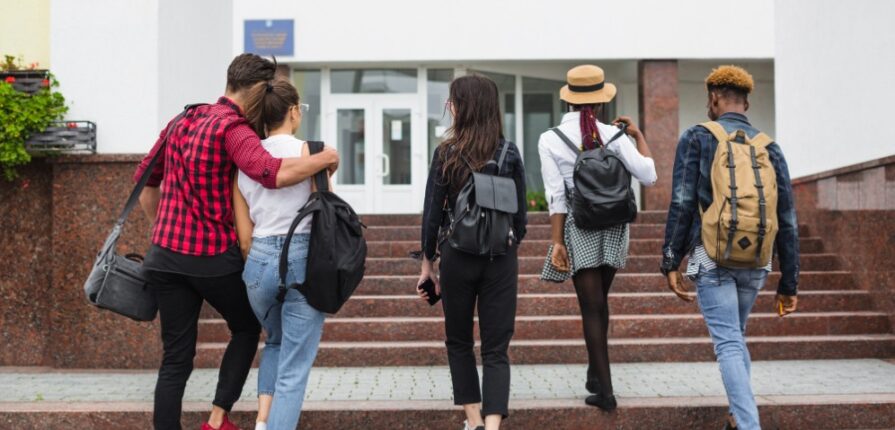Introduction:
In today’s interconnected world, education is no longer limited to national borders or traditional textbooks. At Summer Fields School, the Top Schools in Gurugram are embracing a transformative vision: shaping students into global citizens while nurturing strong local roots.
Modern schooling has evolved to equip learners with the knowledge, skills, and mindset needed to thrive in an increasingly diverse and competitive global society. By combining global awareness with community engagement, these institutions prepare students to lead with empathy, adaptability, and a sense of responsibility.
About Us:
We believe global citizenship begins with strong local roots. Our campus blends the richness of our culture with international perspectives, preparing students to navigate a connected world. The CBSE curriculum is enhanced with global projects, cultural exchange programs, and Model United Nations participation. Extracurricular activities span from coding clubs and sports leagues to theatre productions and art workshops, ensuring well-rounded development. Annual events like International Day, STEM fairs, and leadership summits inspire students to think globally and act responsibly. Teachers act as mentors, guiding learners to appreciate diversity, embrace innovation, and contribute meaningfully to society. Through community service initiatives and sustainability drives, students develop a sense of responsibility towards both local and global challenges. In every classroom, activity, and event, we aim to shape informed, empathetic, and forward-thinking individuals—true global citizens who remain grounded in their values while embracing the wider world.
1. The Need for Global Citizenship in Education
Global citizenship goes beyond academic excellence—it’s about cultivating individuals who understand cultural diversity, respect differences, and are committed to making a positive impact in the world.
In a digital age where news, ideas, and opportunities travel across borders instantly, students must develop the ability to think globally while acting locally. Schools have a vital role in fostering this balance.
2. The Role of Local Campuses in Global Education
While international exposure often comes through travel or study abroad programs, the foundation of global competence can be built right on local campuses. The school achieve this through:
- Curriculum Enrichment with global perspectives.
- Cultural Exchange Programs without leaving the country.
- Collaborative Projects with peers across continents.
- Integration of Global Challenges into classroom discussions.
These approaches ensure students develop a worldview that is inclusive, informed, and proactive.
3. Modern Schooling: Redefining the Classroom
The modern classroom is no longer a static environment with rows of desks and a single chalkboard. Instead, it is:
- Interactive: Powered by technology and collaborative activities.
- Inclusive: Celebrating diverse learning styles and cultural backgrounds.
- Innovative: Encouraging creativity and problem-solving over rote memorization.
This dynamic atmosphere inspires students to engage deeply with both academic subjects and global issues.
4. Integrating Global Perspectives into the Curriculum
To build global citizens, institutions weave international themes into their lesson plans. For example:
- Geography Lessons explore climate change from multiple regional perspectives.
- History Classes highlight interconnected global events.
- Science Projects address challenges like renewable energy and sustainable farming.
- Language Studies encourage multilingual communication and cultural appreciation.
By integrating these elements, students learn that their local actions have global consequences.
5. Language and Communication Skills
Proficiency in multiple languages is a gateway to global connection. Many leading campuses offer:
- Foreign language electives such as French, Spanish, or German.
- Cultural immersion clubs.
- Debates and public speaking competitions on global topics.
These activities improve communication skills and foster cultural sensitivity—core qualities of global citizens.
6. Technology: Bridging Local and Global Learning
Digital tools allow students to connect instantly with peers around the world. Schools leverage:
- Virtual Exchange Programs to collaborate on projects with international students.
- Webinars with Global Experts to broaden perspectives.
- Online Competitions that bring together participants from multiple countries.
Through these platforms, local learners gain real-time exposure to global trends and challenges.
7. Encouraging Cultural Exchange
Cultural awareness is a cornerstone of global citizenship. Even without traveling abroad, students can experience diversity through:
- International food festivals.
- Global heritage day celebrations.
- Art and music workshops inspired by various traditions.
These initiatives help students appreciate cultural diversity and break down stereotypes.
8. Service Learning and Community Engagement
Global citizenship starts with local action. The school encourage students to participate in:
- Environmental conservation drives.
- Literacy programs for underprivileged communities.
- Fundraising for humanitarian causes.
Through service learning, students understand how small, local efforts can contribute to solving larger, global issues.
9. Building Ethical Awareness
Modern schooling emphasizes values alongside academics. Students are taught to:
- Recognize ethical dilemmas in real-life scenarios.
- Respect cultural and religious differences.
- Approach problems with fairness and empathy.
This moral foundation ensures they not only achieve personal success but also contribute positively to society.
10. Leadership Development for a Global Stage
Leadership is a critical component of global citizenship. Schools nurture these skills by:
- Offering student council roles.
- Organizing Model United Nations (MUN) conferences.
- Providing opportunities for students to lead community projects.
Such experiences prepare students to influence change both locally and internationally.
11. Environmental Stewardship
Climate change and environmental degradation are universal challenges. Modern campuses foster environmental responsibility by:
- Integrating sustainability into science and social studies.
- Hosting eco-clubs that run recycling and tree-planting drives.
- Implementing green infrastructure like solar panels and rainwater harvesting.
These lessons empower students to be active stewards of the planet.
12. Encouraging Critical Thinking
Global citizens must navigate complex challenges with informed judgment. Schools promote critical thinking through:
- Inquiry-based learning.
- Group problem-solving tasks.
- Exposure to multiple perspectives on controversial topics.
This analytical approach equips students with the ability to make decisions in a global context.
13. Preparing for Higher Education and Careers
Many higher education institutions and employers value global competence as much as technical skills. The school prepare students by:
- Offering career counseling with an international focus.
- Arranging internships with global companies.
- Providing workshops on cross-cultural workplace dynamics.
This readiness helps students seamlessly transition from local classrooms to global opportunities.
14. Parental Role in Global Education
Parents play a crucial role in supporting global learning by:
- Encouraging participation in exchange programs and cultural events.
- Exposing children to diverse literature and media.
- Discussing world events at home.
This partnership between home and school reinforces global values.
15. Success Stories from Local to Global Impact
Alumni from such educational systems often go on to:
- Lead humanitarian initiatives.
- Launch start-ups with global markets in mind.
- Advocate for social and environmental justice on international platforms.
These success stories highlight the lasting impact of an education rooted in global citizenship principles.
16. Challenges in Building Global Citizens
While the benefits are immense, challenges include:
- Balancing national curriculum requirements with global content.
- Ensuring equal access to global opportunities for all students.
- Training teachers to deliver culturally diverse lessons.
Forward-thinking institutions address these by investing in teacher development, strategic partnerships, and inclusive policies.
17. The Future of Global Citizenship in Education
As the world becomes more interconnected, the importance of global competence will only grow. Future schooling trends may include:
- Virtual reality field trips to historical and cultural landmarks.
- AI-driven personalized global learning modules.
- Greater collaboration between schools across continents.
These advancements will make global education accessible to every student, regardless of geography.
Conclusion:
The School is proving that it’s possible to nurture global citizens without leaving local campuses. At Summer Fields School, the Best Schools in Gurugram where by embedding international perspectives into curriculum, fostering cultural appreciation, promoting ethical leadership, and encouraging community service, they create a learning environment where students are ready to contribute meaningfully to the world.
Modern schooling’s mission is clear: equip students not just to succeed in their careers, but to shape a more inclusive, sustainable, and connected global society.
FAQs:
Q1. How can a local school prepare students to be global citizens?
Ans. By blending cultural heritage with global perspectives, and encouraging open-mindedness and respect for diversity.
Q2. What role do exchange programs play in global learning?
Ans. They give students firsthand exposure to international cultures, enhancing adaptability and communication skills.
Q3. Are global citizenship values taught in CBSE schools?
Ans. Yes, through collaborative projects, Model United Nations, and community service initiatives.
Q4. How do extracurricular activities support global readiness?
Ans. Sports, art, and technology clubs foster teamwork, innovation, and cross-cultural understanding—essential traits for global citizens.
Q5. Can students make a difference globally while still in school?
Ans. Absolutely—through sustainability drives, online collaborations, and awareness campaigns, they can impact communities beyond borders.







